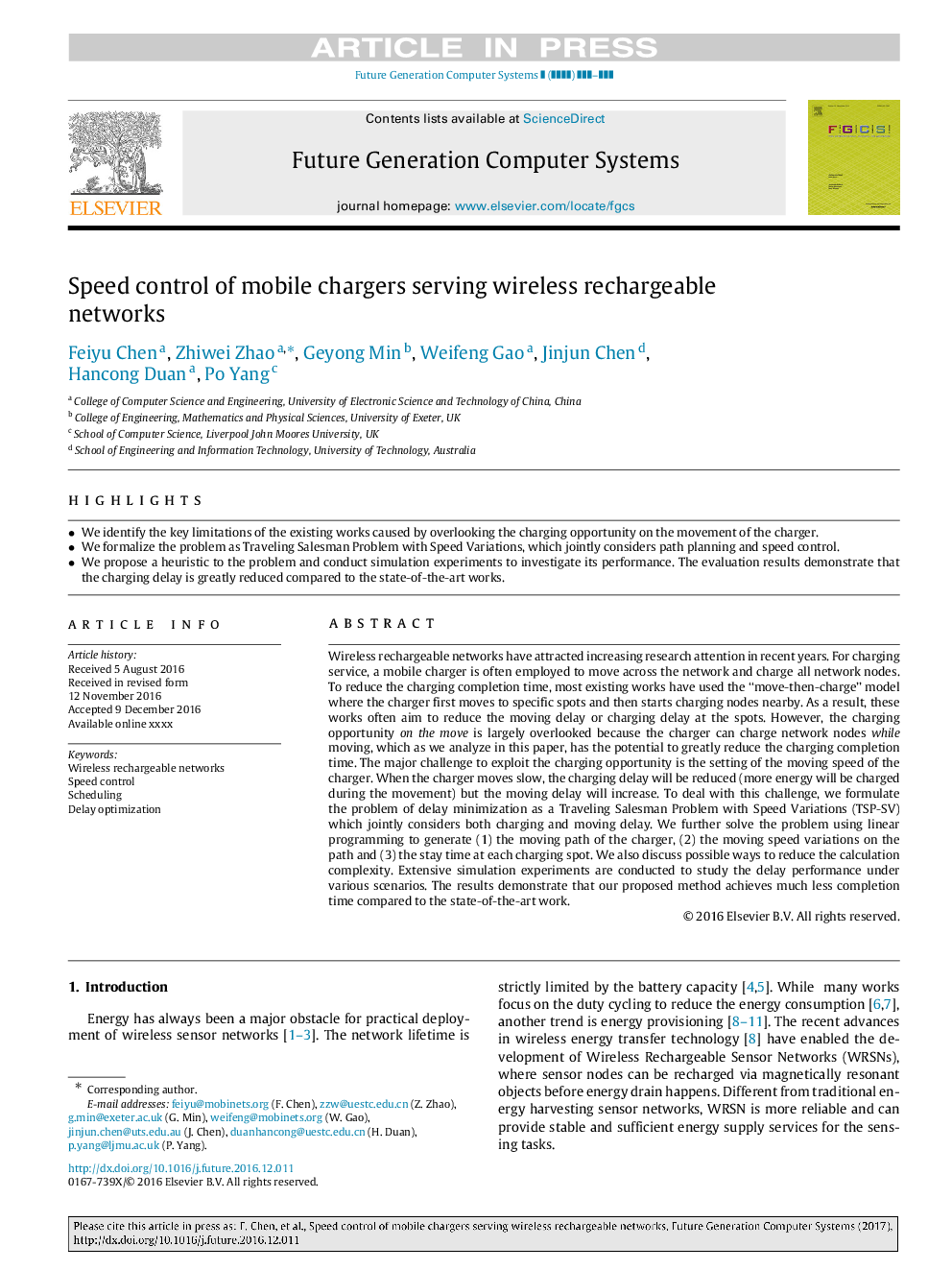ترجمه فارسی عنوان مقاله
کنترل سرعت شارژرهای تلفن همراه در خدمت شبکه های قابل شارژ بی سیم
عنوان انگلیسی
Speed control of mobile chargers serving wireless rechargeable networks
| کد مقاله | سال انتشار | تعداد صفحات مقاله انگلیسی |
|---|---|---|
| 153103 | 2018 | 8 صفحه PDF |
منبع

Publisher : Elsevier - Science Direct (الزویر - ساینس دایرکت)
Journal : Future Generation Computer Systems, Volume 80, March 2018, Pages 242-249
ترجمه کلمات کلیدی
شبکه قابل شارژ بی سیم، کنترل سرعت، برنامه ریزی، بهینه سازی تاخیر،
کلمات کلیدی انگلیسی
Wireless rechargeable networks; Speed control; Scheduling; Delay optimization;

